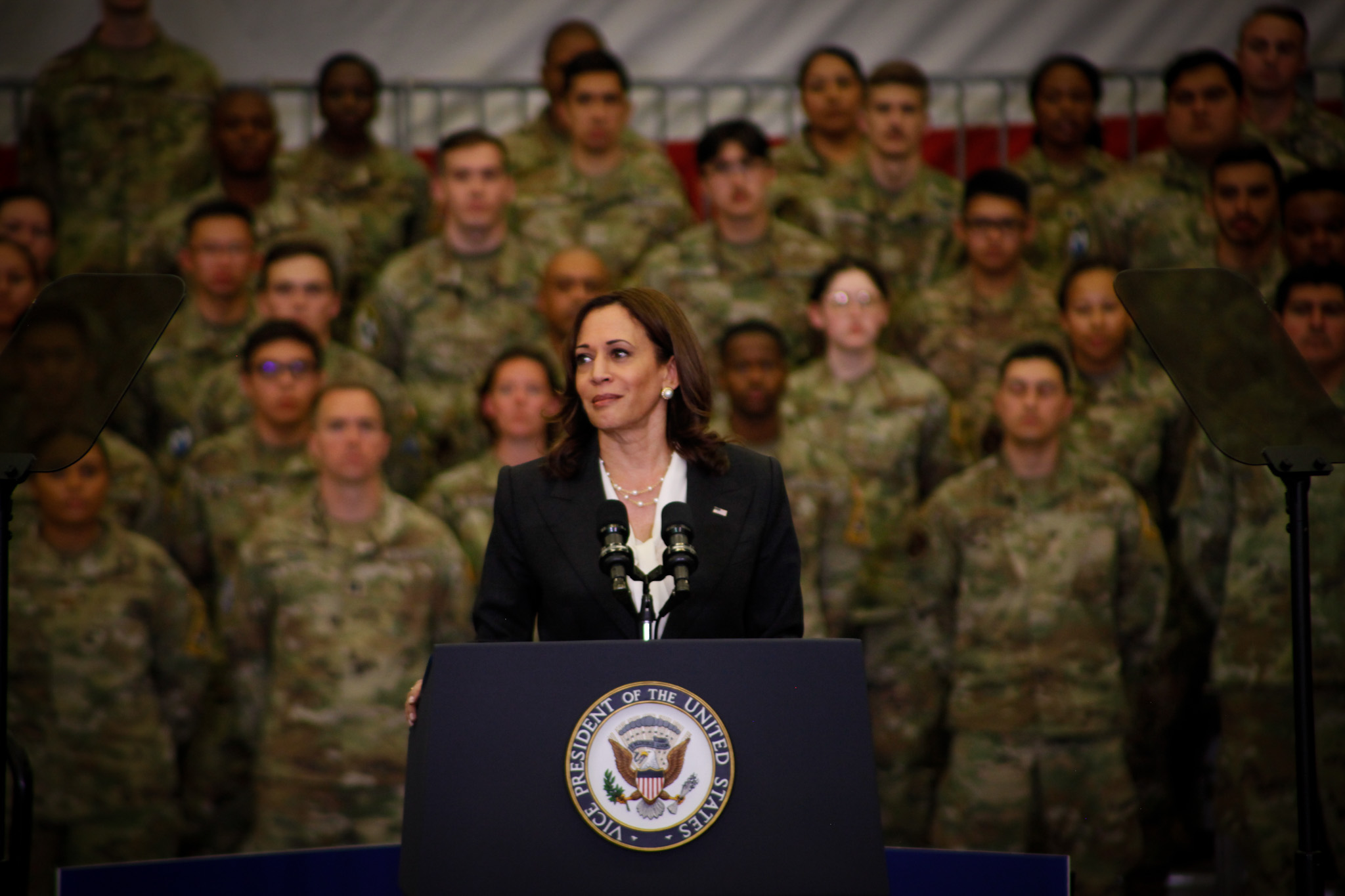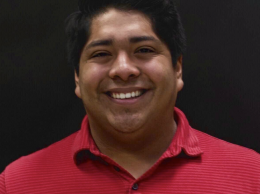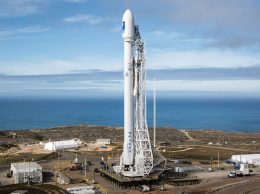In visit to Vandenberg, Harris announces U.S. plans to cease anti-satellite tests
IN THIS ARTICLE
- Latest news Topic
- Jorge Mercado Author
By Jorge Mercado Monday, April 18th, 2022

Vice President Kamala Harris announced that the United States will be the first country to ban anti-satellite weapons testing, during a speech she delivered April 18 at Vandenberg Space Force Base near Lompoc.
An anti-satellite weapon test is a military demonstration where a spacecraft in orbit is destroyed using a missile system, and the tests often create potentially dangerous space debris. Countries performing ASAT tests typically target their own asset. To date, four countries have destroyed their own satellites: the U.S., Russia, China and India. The U.S.’s last ASAT test was in 2008.
“Simply put, these tests are dangerous and we will not conduct them,” Harris said. “We are the first nation to make such a commitment and today, on behalf of the United States of America, I call on all nations to join us. Whether a nation is spacefaring or not, we believe this will benefit everyone, just as space benefits everyone.”
Harris said she made the issue “a point of emphasis” in her first meeting in December as chair of the National Space Council.
“I believe without clear norms, we face unnecessary risks in space,” Harris said. “The United States will continue to be a leader in order to establish to advance and demonstrate norms for the responsible and peaceful use of outer space.”
Harris cited Russia’s destruction of its own satellite on Nov. 15 and China’s ASAT test in 2007 as particularly dangerous. Each test generated thousands of pieces of debris that will now orbit the Earth for decades, Harris said.
The 18th Space Defense Squadron, based at Vandenberg, has identified more than 1,600 pieces of debris from the Russian test and over 2,800 pieces still in space from China’s test 15 years ago.
“This debris presents a risk to the safety of our astronauts, our satellites, and our growing commercial presence,” Harris said. “A piece of space debris the size of a basketball, which travels at thousands of miles per hour, would destroy a satellite. Even a piece of debris as small as a grain of sand could cause serious damage.”
The damage could be enough to interrupt GPS driving directions, television signals, and critical infrastructure such as wind turbines that rely on satellites, Harris said. Debris is also dangerous for astronauts at the International Space Station, she said, citing a conversation she had earlier this month with Mark Vande Hei, an astronaut who spent an American record 355 days in space.
Vande Hei told Harris he had to shelter in an escape capsule when Russia conducted its test, in case the space station was hit by debris.
“Russia’s action was a threat not just to his life, but also to those of Russian cosmonauts,” Harris said.
In her remarks at Vandenberg, Harris also discussed the Artemis Accord, an international agreement on space cooperation drafted by NASA and the State Department during the Trump administration. So far, 18 countries have signed, nine of them since President Joe Biden too office, Harris said.
The Artemis Accords, she said, are “a set of principles that will guide civil use of space.”
“They are designed to create a safe and transparent environment for space exploration, science and commercial activities,” Harris said. “We will remain focused on writing new rules of the road to ensure all space activities are conducted in a responsible, peaceful and sustainable manner. The United States is committed to lead the way and to lead by example.”
Earlier in her speech, Harris again denounced Russia’s invasion of Ukraine.
“Rules and norms provide us all with a sense of order and stability. As we have seen in Ukraine, Russia has completely violated the set of international rules and norms established after World War II, which provided unprecedented peace and security in Europe,” she said. “In the face of Russian brutality, the world has come together to say these roles and these rules and norms must be upheld. I’m heartened to see such strong affirmation of their importance.”












